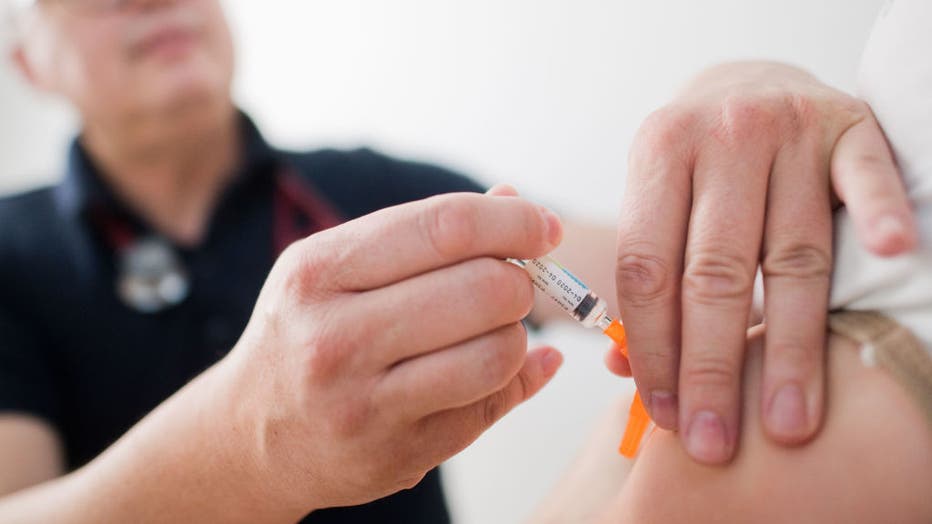Whooping cough on the rise again: What parents need to know in 2025
Unvaccinated child dies of measles in Texas
Fox 4 Dallas reporter Steven Dial joins LiveNOW's Andy Mac with what officials in Texas are saying after an unvaccinated child died of measles in the western part of the state.
LOS ANGELES - Whooping cough, once largely contained through routine childhood immunizations, is resurging across the United States. Preliminary 2025 data from the Centers for Disease Control and Prevention shows 8,485 cases reported so far—twice the number reported at this point last year.
Experts say the rise was expected to some extent. Pertussis, also known as whooping cough, tends to peak every few years. It saw a sharp drop during the COVID-19 pandemic due to masking and social distancing. But the latest spike also coincides with declining vaccine uptake—and that’s what has health professionals most concerned.
Why cases are climbing now
The backstory:
The CDC says the illness spreads through respiratory droplets when an infected person coughs or sneezes. It starts like a common cold, but symptoms intensify as the cough develops a distinct "whoop" sound. Though it can be treated with antibiotics, it can be deadly—especially for infants too young to be vaccinated.
In the past six months, two babies in Louisiana and a 5-year-old in Washington state died after contracting the illness.
Dr. Ericka Hayes, an infectious disease expert at Children’s Hospital of Philadelphia, said low vaccination rates are playing a major role. "When you fall below 95% for vaccinations, you lose that herd immunity protection," she said.
Vaccine coverage gaps leave kids at risk
Why you should care:
The standard vaccine for pertussis—given at 2, 4, and 6 months of age—also protects against diphtheria and tetanus. But health officials are seeing major gaps in coverage. CDC guidance also recommends booster shots for adults every 10 years and for pregnant people to help protect newborns.

28 August 2019, Lower Saxony, Hanover: A pediatrician vaccinates a child with a 6-way combination vaccine against diphtheria, tetanus (tetanus), polio, pertussis, Haemophilus influenzae type b (Hib), and hepatitis B. Photo: Julian Stratenschulte/dpa ((Photo by Julian Stratenschulte/picture alliance via Getty Images))
"The uptake of the vaccine for pregnant mothers is not where we need to be at all," Hayes said about vaccine uptake during pregnancy.
In Pennsylvania, which reported 207 cases so far in 2025, the hardest-hit areas include Philadelphia and Pittsburgh, especially among older children and college students. State officials report that 94.6% of kindergarteners are vaccinated, but local outbreaks suggest uneven compliance.
Regional hotspots raise national concerns
Local perspective:
Michigan has reported 516 cases so far this year. That’s on pace to match last year’s statewide total of 2,081 cases. Chief Medical Executive Dr. Natasha Bagdasarian said local vaccination rates vary widely, and some schools have immunization coverage as low as 30%.
"These pock Bagdasarian added that public health departments are already stretched thin as they juggle multiple outbreaks, including measles.
Whooping cough isn’t just a childhood illness—it’s a warning sign. Health experts warn that the rise in preventable diseases like pertussis reflects growing mistrust in vaccines. That shift in public health attitudes has ripple effects on community safety, hospital capacity, and the protection of vulnerable populations.
While symptoms in teens and adults may be milder, infants and young children are still at high risk. The best protection, doctors emphasize, is vaccination—for kids, pregnant parents, and adults.
The Source: This article is based on reporting by the Associated Press, including statements from CDC officials and interviews with pediatric health experts and state public health departments.

